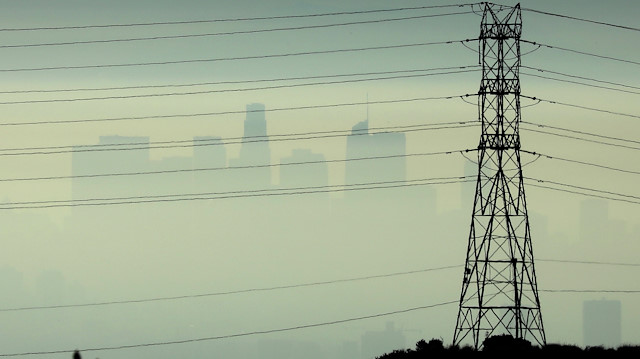
Bitter cold across the US has caused an energy crisis unlike anything seen in years in the world's largest energy-consuming country.
Almost 154 million people – half of the US population – were under some type of a weather alert as of Monday, according to the National Weather Service.
More than 5 million customers across the US had no electricity on Monday due to severe cold and snow in such states as Alabama, Kansas, Kentucky, Mississippi, Missouri, Oklahoma, Tennessee and Texas – most of them Southern states unaccustomed to such cold.
At least 15 people lost their lives since last week due to weather-related causes, including traffic accidents.
The cities of Dallas, Oklahoma City, and Kansas City saw temperatures at their lowest levels since 1989, with the latter witnessing as low as minus 35 C (minus 32 F) with wind chills, the weather service said Monday.
Cold weather coming from the Arctic to the US Midwest sent overall temperatures to their lowest levels since 2011, which led to natural gas pipelines and wind turbines freezing and oil wells shutting down, causing electricity distribution issues in power lines and massive blackouts in some states.
- Oil, gas prices surge
With traders and oil refineries trying to secure the physical delivery of crude and natural gas, prices of oil and gas shot above their average seasonal levels.
The spot price of American oil benchmark West Texas Intermediate (WTI) climbed to as high as $60.92 per barrel on Monday, its highest level since January 2020, while Henry Hub, where the price of natural gas is determined in Louisiana, hit $3.094 per million British thermal units – the highest since last November.
"Although the winter weather through January 2021 was mild, February weather began considerably colder," according to the US' Energy Information Administration.
The National Oceanic and Atmospheric Administration (NOAA) “forecasts below-normal temperatures across most of the United States through the second week of February amid a polar vortex," it added.
NOAA said Friday that 2021 saw the planet’s seventh-warmest January on record in 142 years of data, while Arctic sea ice extent coverage during January was 6.5% below its 1981–2010 average.
NOAA warned that the polar vortex, consisting of a large area of low pressure and cold air surrounding the North and South poles, will become less stable and expand to send cold Arctic air southward over the US with the jet stream.
- Blackouts in Texas
More than 2 million households in Texas were without power on Monday, with blackouts expected to continue through Tuesday.
More than 34 gigawatts of electricity-generating capacity was shut down in the state, which is around 40% of total capacity from last summer, according to the Electric Reliability Council of Texas (ERCOT).
"Every grid operator and every electric company is fighting to restore power right now," ERCOT President and CEO Bill Magness said Monday on Twitter, before ERCOT announced power has been restored to half a million households as of Monday night.
On Twitter Governor Greg Abbott urged people Sunday to stay off the roads, conserve energy, keep generators and grills outside, and avoid heating homes with ovens or stovetops.
"A disaster declaration has been issued for all 254 counties in response to severe winter weather throughout the state," he wrote Saturday.
- Other states
Kansas Governor Laura Kelly declared a state of disaster emergency on Monday due to extreme cold temperatures, and urged people to seal leaks around exits, reduce the temperature on water heaters, and close blinds and curtains.
"We all must cut back on natural gas and electricity usage now to ensure we have enough available to make it through these sub-zero temperatures," she told an emergency briefing.
The Kansas Division of Emergency Management urged people to conserve hot water, take shorter showers, wash only full loads in dishwashers and clothes washers, and only run hot water when absolutely needed.
Kentucky Governor Andy Beshear said the state is having its third winter storm in seven days and warned additional winter weather may come to Kentucky on Wednesday or Thursday.
"Stay off the roads more than ever before, take care on one another, check on your neighbors, especially if you lose power and you have seniors," he told a press conference Monday.














